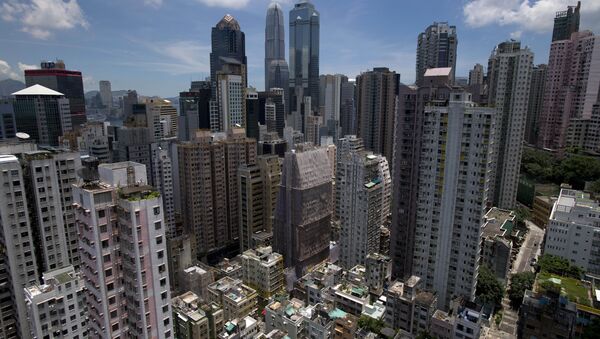In Hong Kong, most residents believe that the bodies of loved ones who have died must be cremated and put in a safe space immediately, in an effort not to disturb the deceased's spirit. While burying bodies is an option it is expensive, and Hong Kong law mandates that bodies must be exhumed after six years, meaning that the remains will eventually be cremated.
Hong Kong's public spaces set aside to store the ashes of loved ones are also expensive, costing at least $360 apiece, and there are waiting lists to get the option to secure a spot for your ancestor.
In 2013, Fung Wai-tsun's family transported their grandfather's ashes from Hong Kong to China, where there is ample space for ashes.
"We would have chosen Hong Kong if spaces were available, or cheaper," Fung angrily told Vice.com.
"In Hong Kong, there's very little choice of where we can put the dead. We have people living in subdivided housing, so if you talk a lot about dead people, no one gives a s***," he added.
Finding a place for the dead in Hong Kong became even harder after the Beijing-led government established a new law in June stating that private funeral businesses must apply for new licenses.
The local government predicts that approximately 80 percent of all those business will be shut down by March 2018 for failing to meet standards set by the mainland China government. This means that almost 400,000 spaces with urns will need to be relocated.
In addition, many Hong Kong residents believe that there is a ghost in every urn that does not belong to their loved one, and that these haunting spirits decrease property prices, indicating property owners would be against additional funeral business so as to keep real estate costs high.
Many, including Fung, view the lack of space for the dead as a government failure.
Alnwick Chan, a property agent, believes that the government in Beijing should look into building a large columbarium on one of Hong Kong's islands, but suggests that finding spaces for ashes on the Chinese mainland is the best option for now.
"Turning to Guangzhou [in mainland China] is one of the good ways to solve Hong Kong's problems. It would relieve the pressure of demand, if the land is legally meant for that purpose," Chan said.



